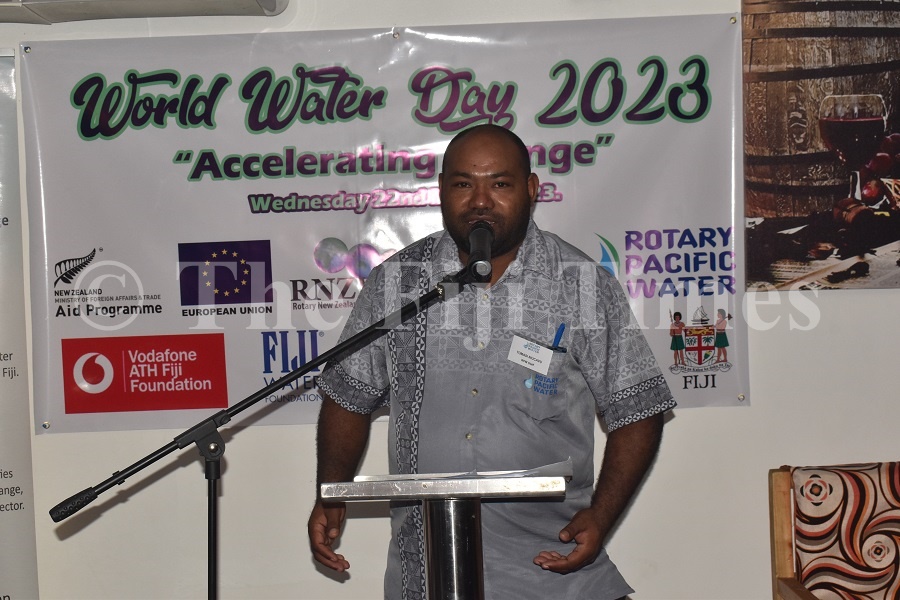Among Tomasi Niucavu’s many passions, serving the community sits at the top of the list.
He is acutely aware of the challenges and struggles faced by those who live and eke out a living in rural, remote and far-flung island locations.
And having built a career in the public health sector, he is extremely vigilant of rural needs and people’s ability to access public services and amenities that urban communities often take for granted.
Keeping this in mind, he joined the Rotary Pacific Water for Life Foundation in May 2018 to continue serving what he loved – the community.
Today, he is the organisation’s WASH program manager.
“Before that I was working with Live and Learn, in environment education, and before that, I was with the Ministry of Health for nine years,” the 38-year-old said.
“I’ve done advocacy, more towards preventative health awareness and working closely with communities on the reduction of communicable diseases out there because my background is in public health.”
Mr Niucavu said each time his team travelled to help out a community was a challenging, yet rewarding experience.
“On the ground, based on the experience we face out in the field, there is a great need for improved and consistent water supply, not only that but clean water too.
“In some of the communities that we work with, they have to look for water sources while some have to ask from neighbouring villages or share sources with those villages because they don’t have a proper source, with consistent water supply.
“On sanitation facilities that are out there, we still have people defecating openly and not valuing the importance of sanitation.”
He said the lack of proper sanitation facilities was a challenge for women who needed them to maintain proper hygiene during their menstrual cycle.
“You can’t have good sanitation facilities and proper hygiene where there is no consistent water supply, so basically this contributes to many communicable diseases like typhoid, dengue, leptospirosis and skin infections.
“You also have diarrhoea and abdominal pain, conjunctivitis, these are emerging and prevalent diseases that are out there in the field, especially in rural and remote areas.”
Mr Niucavu has also seen instances where families used up their savings just to transport their family members to hospital facilities.
“It’s a burden for them. That money and savings can be used for other important family commitments…”
Mr Niucavu is concerned about women’s menstrual hygiene.
“Because of the sensitivity of the issue, people tend to ignore it but that’s something that we are advocating for.
“We work with the Ministry of Health’s zone nurses and medical officers to provide awareness to women on the complications of improper menstrual hygiene management.
“There is a greater need for stakeholder collaboration, that’s why we have our partners working together to improve safe and consistent water supply.
“That smile they have once they turn on the tap…or use a shower is something new. They’re used to the bucket and seeing the satisfaction (on their faces) really gives you drive and motivation to continue doing what you do.”


